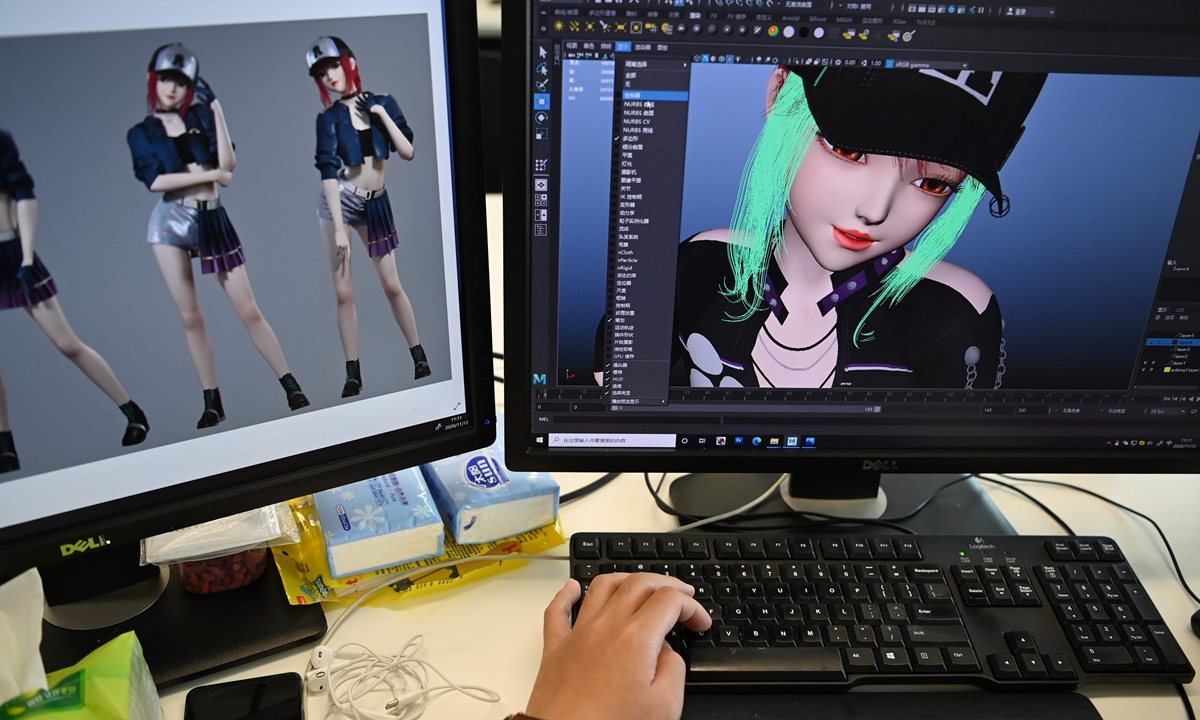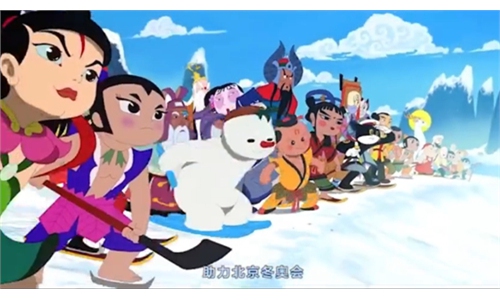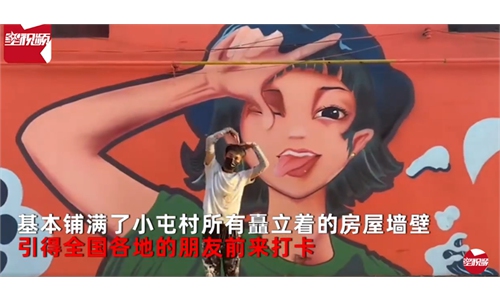
The image of a virtual idol "Liu Ge" is being designed. Photo: VCG
For many young Chinese it has become a popular trend to design their own virtual character and then hire an artist to make it a reality. However, in the rush to own these perfect images, these youths, many of whom are in their teens, are spending enormous amounts of money to commission these customized cartoons, puppets and dolls. Many Chinese experts are laying the blame for this lavish spending at the feet of artists, who they claim are pushing minors to over consume.
According to some insiders in China's ACGN (anime, comics, games and novels) industry, many young Chinese enjoy having a cartoon avatar that looks like themselves or shows off their personality, which they then treat as their "children."
Most of the clients in this circle are teenagers, while the sellers are artists, the products tend to be drawings that show the client's character on the cover of a magazine. Both the buyers and sellers can connect through online apps, with the terms of the commission subject to negotiation.
A single commissioned painting can cost several hundred to a thousand yuan ($150), while the price of a painting by a "top artist" can reach into the tens of thousands of yuan.
As this trend has gained strength, some children have started to spend money blindly with no thought of the cost.
Media reported that in April a 13-year-old girl spent 70,000 yuan to commission a single customized picture and that over the previous six months she had spent a total of 700,000 yuan. Although her parents later asked the platform to cancel the commission, the news caused huge controversy on Chinese social media.
Wang Ying, a psychologist with the Beijing Reading the Heart Psychological Health and Technology Company, told the Global Times on Tuesday that a pursuit to establish a self identity is the main reason why these minors spend so much money to maintain a virtual image.
"They find love and affiliation and gain a sense of satisfaction and success while adopting their virtual 'kids,' which is a normal psychosocial phenomenon," she said, but pointed out that sellers are preying on teen psychology and are inducing minors to consume.
"Because minors' judgment is not yet mature, they are more emotionally susceptible to temptation and influence, especially under the influence their peers, and will blindly follow along," Wang added.
Consumption is just a behavior, Wang noted. Parents should first understand this behavior and the reasons behind it and then work with their children to help them establish an identity and allow them to realize that what they are really looking for is what the product represents and not the product itself, Wang suggested.
To further encourage spending, some "top artists" have launched marketing campaigns targeted at teens.
Li Weimin, a consumer rights lawyer and director of the Beijing Wei Bo Law Firm, told the Global Times on Tuesday that according to current law any contract made with a minor, no matter the price, is invalid, even if the minor hides their identity at the time of the commission.
He suggested that internet platforms should offer warnings reminding minors that they are not allowed to participate in such transactions, and strictly limit minors ability to take part in these transactions by setting up an age gate.




